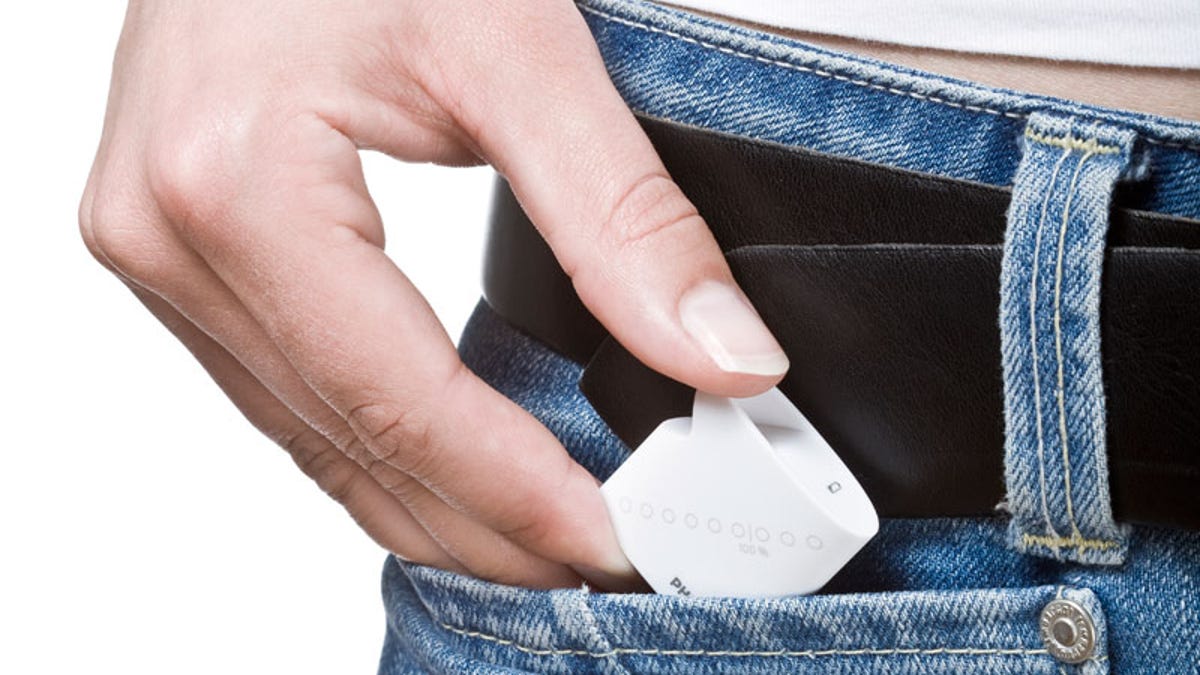Philips' DirectLife makes fun a workout
DirectLife ups the ante for personal-fitness gadgetry with an activity tracker, motivator, and data organizer that encourages setting and meeting realistic goals.

Philips' DirectLife fitness tracker, which monitors one's daily activity levels by tracking the duration and intensity of movements, has been doing so well since its release in October 2009, according to a company representative, that it is about to be released in Germany and the U.K. Moreover, Philips has just announced a companion gadget that might actually rival the iPod.
The "program" associated with DirectLife, which costs $99, plus a $12.50 monthly membership fee, is three-pronged: wear the small, waterproof monitor with 3D accelerometer technology (think Wii) to track your movements; go online to get the extra push you may need from personal coaches there to help; and check out your personal Web page to track stats, tips, activity ideas, and goals.
And now, behold Activa, an MP3 player unveiled at CES whose accelerometer actually selects the songs that most closely match the tempo of your body's movements. (It is expected to be released in April for $130.)
Launching into a sprint at the top of a hill? Cue Radiohead's Idioteque. Drifting into shavasana on your yoga mat? Doth complete stillness suggest Sigur Ros? Later, check out your DirectLife progress page online, and see just how well you grooved to your music.
Because let's face it: the vast majority of us don't have the time, discipline, or desire to drag ourselves to gyms we don't like and adhere to diets we don't find satisfying (all while listening to music that is--gasp--off-tempo). Some people can, and I typically respond with a rather unattractive, gaping expression that manages to convey both admiration and confusion.
But there are so many other activities that movement-tracking devices remind us are also a part of fitness--things that are silly, or fun, or that just feel good. Try skipping down your hallway. Wrestling with your dog. Rocking out in the kitchen. Having an earth-shaking le petit mort (which song will your Activa match to that?). These things are good for you, and DirectLife is here to confirm this with precise measurements of calories burned.
Perhaps it's easy to be overly enthusiastic about these gadgets for those of us who don't have a mountain to climb. I've always had a hard time gaining weight, and I already exercise and eat well. But I also break into song at the slightest provocation, perform jolly jigs in the kitchen while dicing vegetables, and invent bizarre cooing noises as I chase my cats up and down the hallway. If you're just getting started with this program and set modest goals, you might be surprised that breaking what I'll call a "silly sweat" four times a day might alone help you reach them.
DirectLife has many things in common with the similarly priced Fitbit, which was developed by former CNET employees and tested a few months ago by CNET's own Josh Lowensohn, who concludes:
Unsurprisingly, [Fitbit] hasn't moved me to make a dramatic shift in the way I live my life, but it has given me a benchmark of how active or inactive I am on a daily, weekly, and monthly basis. In other words, you can be a non-gym rat and still get a multitude of uses out of this, but it will always be more beneficial for highly active people.
In a statement, Philips has a similar message:
With DirectLife, people learn that being active doesn't just have to mean a daily gym routine. For most people, even adding more activity and movement into their daily lives can make a big difference--such as going for a walk, taking the stairs, or dancing with the kids.
That's a boring list, but here's the point: we, in all our modern glory, have so far removed ourselves from basic physical activity that we have to wear little motion sensors to remind ourselves that walking, dancing, playing, and being silly are important, real steps in maintaining basic physical fitness. Hey, the first step is admitting there is a problem.
And the end goal is much like that of any set with a coach, teacher, or therapist: use devices such as DirectLife until you don't need them anymore.

